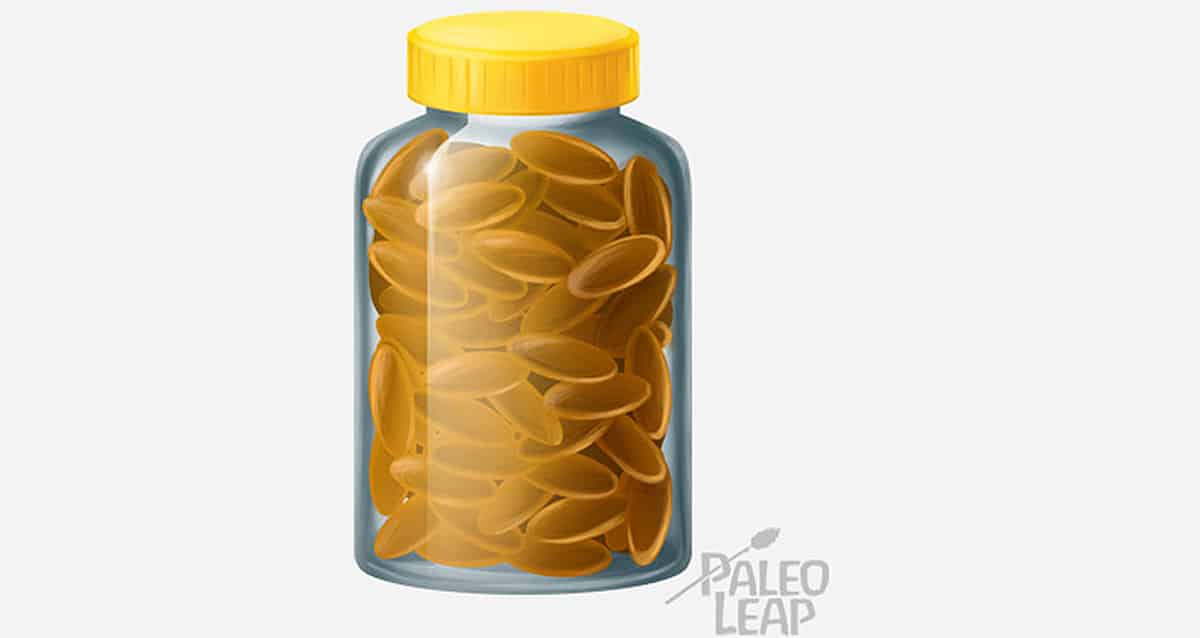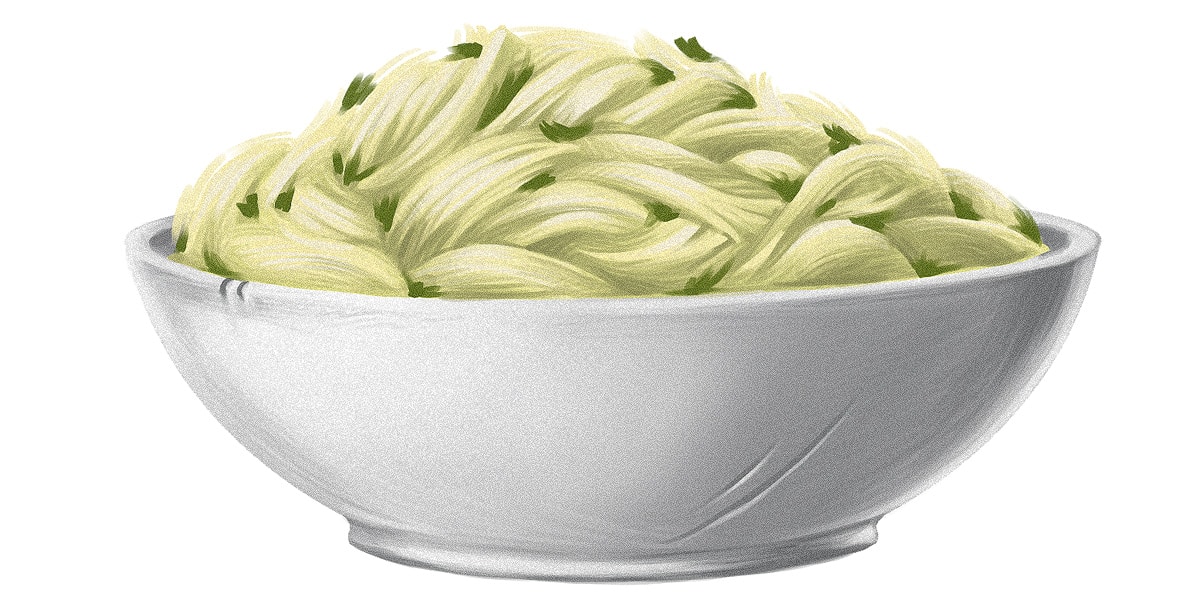When it comes to supplements, here are four common approaches:
- The Insurance-Buyer: couldn’t name any particular nutrients she thinks she’s deficient in, but takes a multivitamin for “insurance.”
- The Supplement Maniac: needs to buy extra shelving for the collection of pills that she takes every day.
- The Supplement Hoarder: needs to buy extra shelving for the collection of everything she should be taking but always forgets.
- The Caveman Re-Enactor: “Cavemen didn’t take supplements, so why should I?”
If you’re in one of the groups above, the goal of this article is to persuade you to leave that group behind and join the last group: the rational, evidence-based supplementers. People in this group…
- Understand the actual evidence about what supplements can and can’t do, so they don’t get taken in by ridiculous claims (especially for weight-loss products).
- Understand their own individual nutritional needs, so they can choose the supplements that make sense for them and not waste money on ones they don’t need.
- Choose supplements very carefully to avoid fraudulent products.
Most people can get almost everything they need from a nutrient-dense diet with lots of fruits, vegetables, and high-quality animal foods. There's room for carefully-chosen supplements on that diet, but it's important to be skeptical about nutrition in pill form.
Why it’s Important to be Skeptical about Supplements
Walk into any health-food store and you’ll see aisles and aisles of supplements. Vitamins, minerals, herbal blends, hormones, spices of different kinds, probiotics, prebiotics, antioxidants...supplements are marketed to us as the way to better health. But if you look at the actual research on various supplements, often it tells a different story.
A nutrient might be important for some process, but that doesn’t mean that taking the nutrient in supplement form will improve your health.
- You might not absorb the supplement. If you don’t absorb it, it won’t do you any good. For example, people with Inflammatory Bowel Disease have a hard time absorbing iron. They might be deficient in iron, but taking a supplement won’t help at all; it just comes right back out the other end.
- You might not be able to use it without another nutrient as a co-factor. For example, taking calcium supplements probably won’t be helpful for bone health if you’re deficient in Vitamin K2, because K2 is the vitamin that directs the calcium into your bones. But most calcium supplements don’t include K2, so you could just be wasting your money on calcium that your body can’t use.
- More is not better. In many cases (e.g. B vitamins), your body just excretes whatever it can’t use. Loading up on high-dose supplements only gives you expensive urine.
- Overload might be actively dangerous. For example, calcium supplements may increase the risk of cardiovascular disease, because calcium overload (especially with inadequate K2 – there’s that pesky cofactor problem again) can send the calcium to your arteries to form plaques instead of to your bones.
- There might be a window of opportunity that you’ve already missed. For example, folate is very important for brain health in developing fetuses, but there’s no strong evidence that supplemental folate improves brain health in adults.
A Short List of Supplements that Don’t Work As Advertised
Vitamin C for curing or preventing colds, or for “boosting your immune system.” There’s simply no evidence that this actually happens.
Calcium for preventing osteoporosis. If you read the warnings above, you know that calcium metabolism is much more complicated than just “take a pill and all the problems go away.” A recent meta-analysis found that calcium supplements have “weak, inconsistent effects” on risk of bone fracture. Diet can help with bone health, but it’s much more than just popping a calcium pill.
Antioxidants for doing any kind of magical anything (“reverse aging! Prevent cancer! Cure diabetes!”). Antioxidants are important, but the benefits of antioxidant supplements are dubious at best. The major antioxidant activity in your body comes from glutathione, which is an antioxidant you make yourself and can’t get in supplement form.
Why you Might Take a Supplement Anyway
With all the precautions over with, there are still some reasons why you might want to take a supplement or two. The point isn’t that all supplements are evil; it’s that supplements should be carefully chosen based on evidence that they might help the person taking them, based on the person’s individual circumstances.
“But cavemen didn’t take supplements!”
You are not a caveman, and Paleo is not about imitating cavemen You’re exposed to air pollution and environmental hormone disruptors that cavemen didn’t have to live with. You probably have several years of junk food in your history that cavemen never had. That alone could justify some corrective interventions that cavemen never had to bother with. If a supplement has demonstrable health benefits, then it may be good to take it regardless of whether cavemen had it or not.
Here are a few supplements that might actually be useful for people who are already eating Paleo (but might have some leftover health issues from eating junk food before).
Supplements for General Health
Vitamin D
Humans get Vitamin D two ways: from food (primarily fish), and from sunlight. Sunlight is the more important of the two, and provides as much Vitamin D as we need…if we actually go out in it.
If your sun exposure is low, it’s very, very hard to make up for it with food. Even if your diet is great, you might not be getting enough Vitamin D. 42% of US adults are deficient in Vitamin D, which is a serious problem because it’s really an important nutrient.
So for people who don’t get outside in the sun much, a Vitamin D supplement can be a good idea even if your diet is 100% on point.
Fish oil

Fish oil has gone back and forth in the literature for the past few years. It was originally praised for its anti-inflammatory and cardiovascular benefits, but recently it's fallen from grace a little. Here’s the short version:
- The benefits of eating actual fish seem to be bigger.
- Fish oil is not a magical Omega-6 eraser. You can’t “undo” the damage of a meal full of canola oil by chasing it with an enormous glug of fish oil. It’s much better to not get the Omega-6 overload in the first place.
- The cardiovascular benefits of fish oil may have been oversold, especially considering that a lot of early studies were funded by the fish oil industry.
It may still be helpful for people who can’t eat real fish to take a fish oil supplement, but try to prioritize actual food – the fish has other nutrients that are also good for you, and the fat is less likely to have been damaged during processing.
Melatonin
Melatonin is best-known as a supplement for going to sleep when you want to, but it may also be helpful for gut health, weight, and metabolic health. You can learn more about melatonin here.
Supplements for Digestion
Many people come to Paleo with pre-existing digestive problems. If that's you, one or more of these may help, but not all of them are right for everyone (are you sick of hearing that yet? Sorry, but it's still true!), so choose carefully.
Pre- and Probiotics
These two are for the benefit of your gut biome, the friendly bacteria that live in your gut.
- Prebiotics provide fiber that the gut flora can eat. Learn more here.

- Probiotics provide an infusion of extra gut flora, featuring species that scientists think will improve your health. Learn more here. You can also get probiotics from probiotic foods, like naturally fermented sauerkraut.
Both can be right for some people but not right for others. For example, if you have any bacteria overgrowth problems, then taking prebiotics is probably a bad plan, because it will just make the overgrowth worse.
Magnesium
Magnesium can be helpful for muscle cramps, for people under a lot of stress, or for people who suffer from constipation (it’s a mild laxative because it draws water into the small intestine).
You can read more about magnesium here.
Digestive Enzymes
Digestive enzymes can be helpful for people with weak digestion (if you feel like your food “sits like a brick in your stomach,” this may be you). You can learn more about digestive enzymes here.
Supplements for Particular Situations
Above are some supplements that may be helpful to large chunks of the population. There are also individual situations where it might be reasonable to take a supplement because, for some reason or other, you just can’t get that nutrient from food.
- After bariatric surgery, many people have to take supplements for their whole lives because they’re no longer physically capable of absorbing some vitamins.
- People recovering from malabsorptive diseases like Crohn’s Disease may find supplements of various nutrients to be helpful.
- People who can’t eat a particular food group for whatever reason might use an carefully-chosen supplement to substitute for some nutrient they can’t get otherwise.
There are all kinds of reasons why specific supplements might be right for you; the point is just to choose them deliberately.
You should be able to define what you need and find evidence that the supplement actually meets that need.
Choosing Supplements Wisely
Most Americans assume that supplements have to pass some kind of safety testing before they go on the market. That’ not true. There is no federal regulation of supplements before they hit the shelves. The supplement industry is almost completely unregulated and every year new stories crop up about contaminated or completely fraudulent supplements (sometimes with ingredients like wheat and soy, which could be actively dangerous).
Here’s how to find the best-quality supplements and avoid fake or contaminated products.
Summing it Up
Paleo isn’t about being anti-supplement; it’s about choosing the ones that are right for you. With all due apologies to Fight Club, you really are a special and unique snowflake, with a particular history of diet and health that nobody else can quite duplicate. Pick your supplements accordingly, and demand evidence that they do actually work the way you need them to work.





Leave a Reply